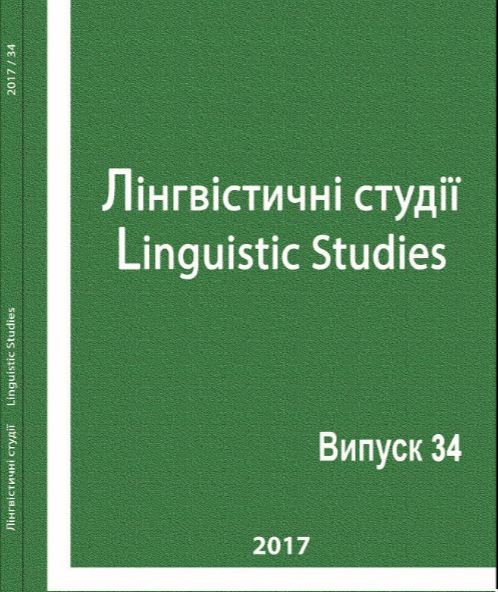Expressive Nomination in Contemporary Toponymicon.
Keywords:
slang oeconym, toponym, slangonym, astionym, comonym, connotonym, derivation, name motivation, substandard onymyAbstract
Slang oeconyms can be formed in several ways. Derivational way is represented by final clipping (apocope); final clipping combined with suffixation; abbreviation. Specific kinds of acronyms are used. Toponyms are phonetically and / or morphologically transformed in order to make them sound similarly to the appellatives carrying the necessary characteristics.
Another way is the use of connotonyms which are neither phonetically nor morphologically connected with the standardized. In this case a nominator singles out a certain characteristic of the place and uses a real connotonymic oeconym expressing this characteristic.
The motivation of numerous slang names is connected with the peculiarities of ethnic composition of population, its occupation, character, famous representatives, geographical location, and characteristic details of environment. In certain cases, a slang oeconym appears due to synonymy or translation of meaningful parts of a standardized name.
Slang oeconyms with pejorative and neutral connotations are much more widespread than the ones with meliorative connotations. An inalienable part of slang toponyms is irony which is grounded on the comparison of small towns and villages with world metropolises.
References
Hukova, Lina and Fomina, Liudmyla. Ekspressivnyye nominatsyi prostranstvennyh obyektov v lingvokognitivnom aspekte (Expressive nomination of spatial objects in linguo-cognitive aspect). Yazyk I mental‘nost‘ (Language and menatlity) Ed. by Pimenova M. Sankt-Peterburg: SPbGU, 2010. 239‒245. Print.
Hukova, Lina and Fomina, Liudmyla. Traditsyonnyy formant -sk v ekspressivnom toponimikone (Traditional suffix -sk in expressive toponymy). Naukovyy visnyk Khersons'koho derzhavnoho universytetu. Seriya Linhvistyka (Scientific bulletin of Kherson State University. Series Linguistics) 18 (2013): 317‒321. Print.
Karpenko Yuriy. Stylistyka toponimiyi (Stylistics of toponymy). Zapysky z romano-hermans'koyi filolohiyi (Roman and German philology journal) Odesa: Feniks, 2008. 53‒59. Print.
Lukash, Halyna. Onimna hra v suchasniy nominatsiyi (Onymic play in modern nomination). Linhvistychni studiyi (Linguistic Studies) 30 (2015): 121‒125. Print.
Martos, Svitlana and Oleksenko, Volodymyr. Movna hra yak zasib slenhovoho slovotvorennia (Language play as a means of slang word formation). Naukovyy visnyk Khersons'koho derzhavnoho universytetu. Seriya Linhvistyka (Scientific bulletin of Kherson State University. Series Linguistics) 8 (2008): 98‒102. Print.
Otin, Yevheniy. Slengovyye sobstvennyye imena v onimnom prostranstve sovremennogo russkogo yazyka (Slang proper names in onym space of the contemporary Russian language). Λογος όνομαστική (Onomastic Sciences) 1 (2009): 59‒63. Print.
Stavytska, Lesia. Ukrayinskyy zharhon. Slovnyk (A Dictionary of Ukrainian Slang) 2005. Print.


